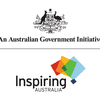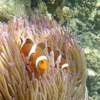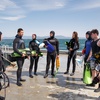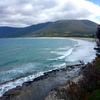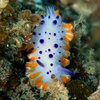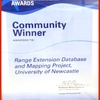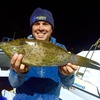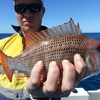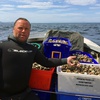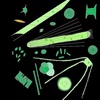
Climate stirring change beneath the waves
Human-induced climate change is triggering changes beneath the waves that could have a long-term effect on marine food webs, a study suggests. An assessment of phytoplankton in the North Atlantic found the microscopic organisms' pole-ward shift was faster than previously reported. Read more at BBC News.


